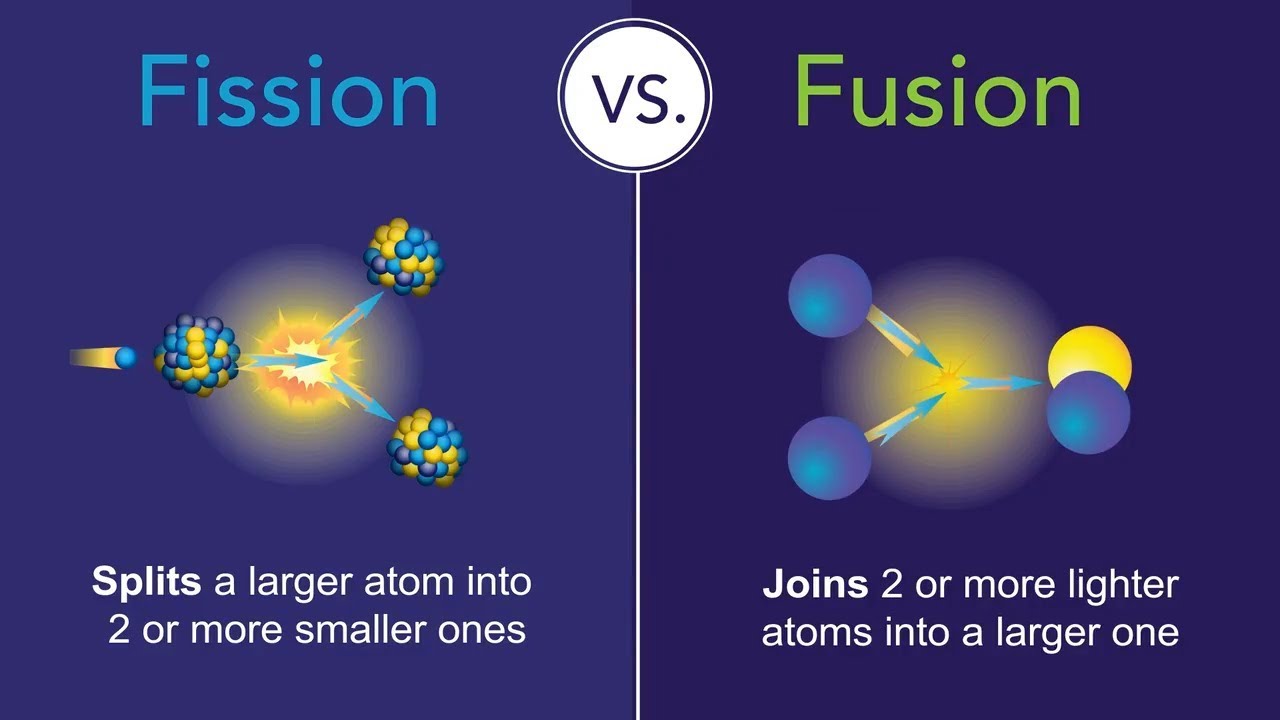Nuclear fission and fusion are two concepts that, due to their similar pronunciation, are often used as synonyms when they are not.
Both nuclear fusion and fission have to do with handling the nucleus of chemical elements, since a chemical element, depending on the conditions that exist, can unite or divide if the characteristics are met.
Both terms are currently very famous due to the rise of nuclear energy, which has become even more popular thanks to television series like The Simpsons, in which its protagonist has to face situations at his job at the nuclear power plant and they come out terms like fusion and fission.
The problem is that since they don’t explain what these terms consist of, people tend to get confused and use them almost as if they were synonymous, when obviously they are not. That is why it is necessary to create an article like this one , to explain and clarify the differences between both terms.
From the education section of doncomos.com, I am going to explain the definition and the differences between nuclear fusion and fission , correctly clarifying the concepts so that you never get confused again when defining the terms.
What do you need to differentiate fission from fusion?
- A little knowledge in natural sciences, to be able to understand the differences between the two.
Instructions to differentiate fission from fusion
- Definition of nuclear fission: Nuclear fission is a concept that is quite well known, which we are going to define first because it is the most used way to obtain energy and the only one that is viable today. Nuclear fission consists of dividing the atom of a chemical element into several smaller atoms, thus releasing a small amount of energy, which is the energy that is obtained in nuclear power plants and that is transformed into electrical energy suitable for human consumption in homes. For this, methods such as neutron bombardment are often used to divide the atom into several. The atoms that can be easily fissioned are usually the atoms of very heavy chemical elements such as uranium, krypton, strontium… thus creating smaller chemical elements as a result of the division of both. The bad thing about nuclear fission is that leaves a large amount of radioactive waste, which must be stored and monitored.
- Definition of nuclear fusion: Now that we have defined the term nuclear fission, it is the turn of nuclear fusion, so that you do not make mistakes again. Nuclear fusion consists of the union of two light chemical elements (with a low atomic number), in a heavier element, thus releasing a large amount of energy (much more than in nuclear fission). The atoms that usually fuse together are the smallest atoms in the universe, like hydrogen, creating helium in the process. To carry out nuclear fusion, very high temperatures of millions of degrees are needed, therefore, fusion today cannot be used to obtain electrical energy and it only occurs in nature in stars like the sun, in which it is produced. it produces fusion of nuclei constantly. If nuclear fusion could be carried out, it would be a much cleaner type of energy than fission (it leaves no waste because instead of creating more atoms it creates fewer) and it would generate much more energy at once. However, as I have already said, its realization is not yet viable.
- Differences between fusion and fission: Nuclear fission and fusion have a large number of differences as you have been able to verify, which I am going to enunciate here.
- Chemical elements involved: Nuclear fission involves very heavy elements such as enriched uranium, while nuclear fusion involves very light elements such as hydrogen and helium.
- Method of realization: Nuclear fusion is carried out at extremely high temperatures of millions of degrees and fission is carried out with techniques such as neutron bombardment.
- Residues: Nuclear fusion leaves no residue, however, fission does not leave any residue because the atoms are joined.
- Released Energy: Nuclear fission releases a small amount of energy and nuclear fusion releases a large amount of energy when performed.
- Viability: Nuclear fission is totally viable and has been done for years and fusion at the moment (2016) is totally unfeasible.
Tips to differentiate fission from fusion
- Trick to avoid mistakes; The trick I use to avoid getting confused is to remember the word fusion, which we all associate with union. So fusion is union and fission is disunion.
